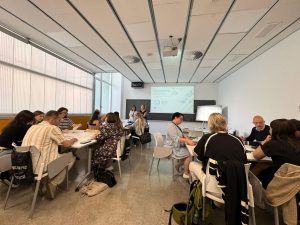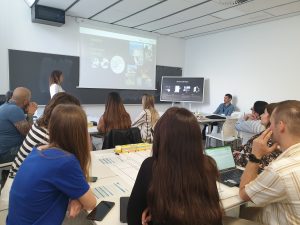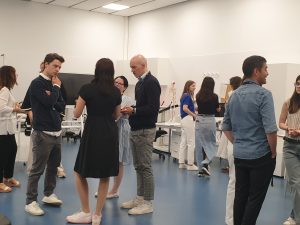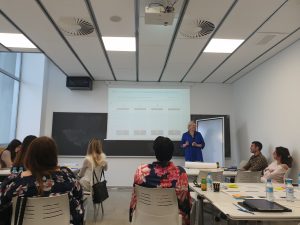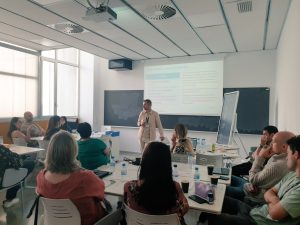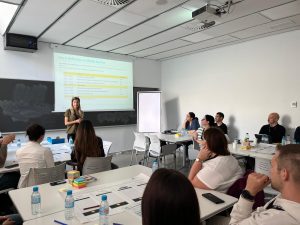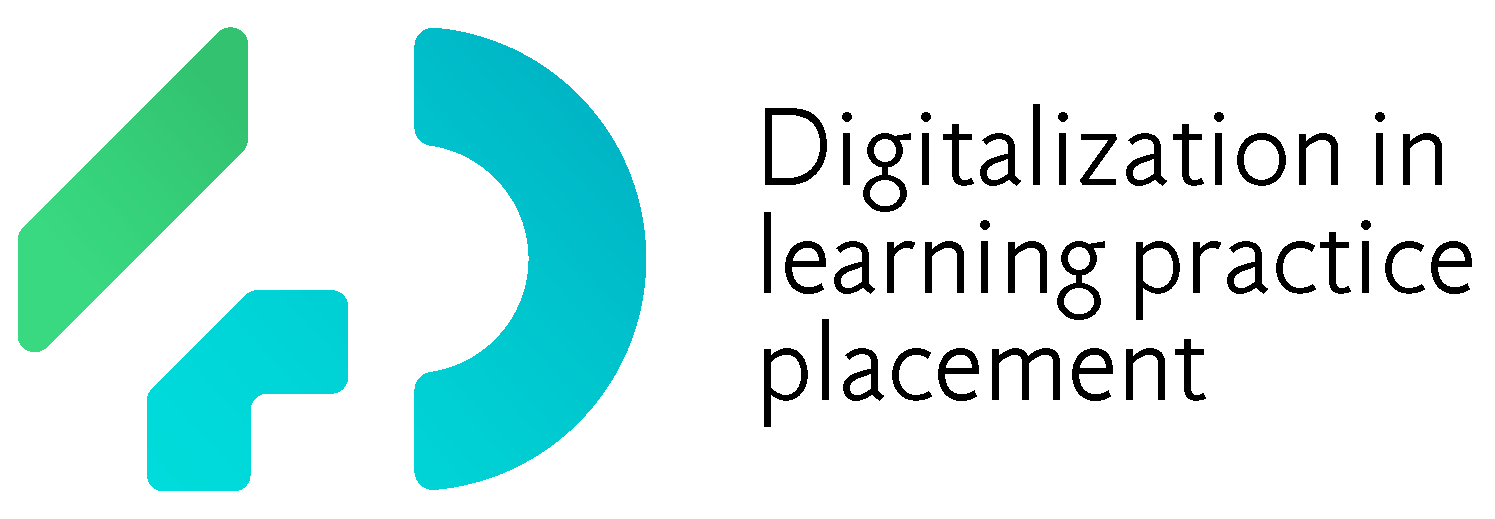The transnational collaboration between students and teachers from various European universities dynamized an intense learning activity within the framework of the 4D project, focusing on the iteration and improvement of a mobile application aimed at external academic practices.
The Tecnocampus University Centre enthusiastically hosted the 4D project learning activity from May 28 to 31, offering four training sessions to evaluate the initial results of its pilot study. The main objective was the full involvement of end-users, both students and teachers, in the validation of the mobile application, with the intention of generating valuable conclusions for the future deployment of the digitalization of clinical practices in health environments.
The experience was enriching for the 10 students and 7 teachers who participated, representing universities from Poland, Germany, and Spain. The four training sessions allowed students to jointly address the difficulties and practical tasks posed during their clinical-assistencial training. During the four days of activity, innovative solutions were generated to improve the mobile application and overcome the current challenges of clinical practices.
In addition, to improving the application, this collaboration facilitated the exchange of knowledge and the identification of strengths and areas for improvement, as well as the opportunities and threats associated with the organizational and administrative aspects of clinical practices.
The program content included four master sessions based on the SWOT analysis of each practice site, consensus on the specific needs of mobile applications, the exchange of best practices, and reflection on the user experience with the application.
The 4D project coordinators, Dr. Esther Cabrera and Dr. Carlos Martínez, state that “as project coordinators, our goal was to provide students with a crucial understanding of digitalization in mobile learning, highlighting its functionalities and usability.” They also agree that “for all participants, this represents a significant novelty, as through this experience, students have not only had the opportunity to expand their technical and practical knowledge but have also acquired essential digital skills for their future professional careers in nursing and medicine.”
Some photos of the learning activity sessions:
